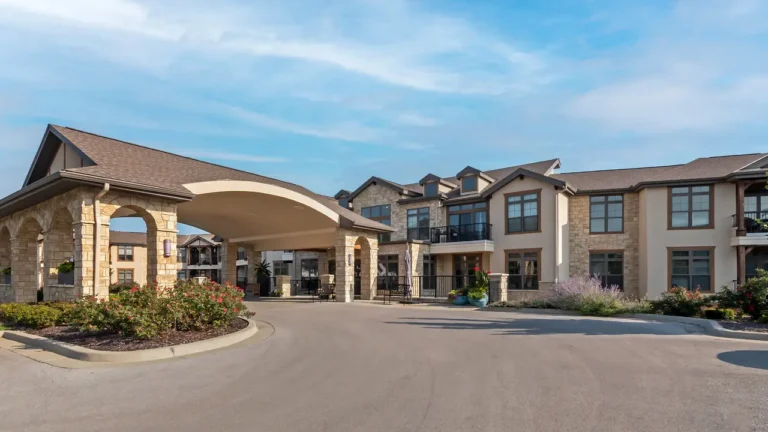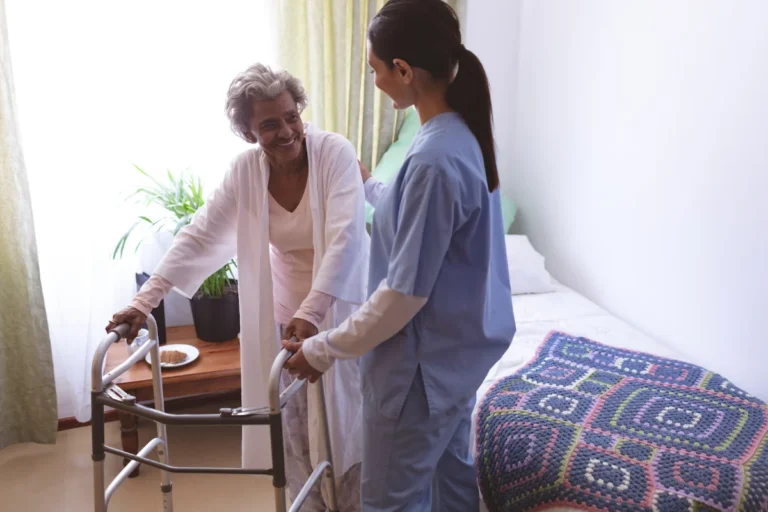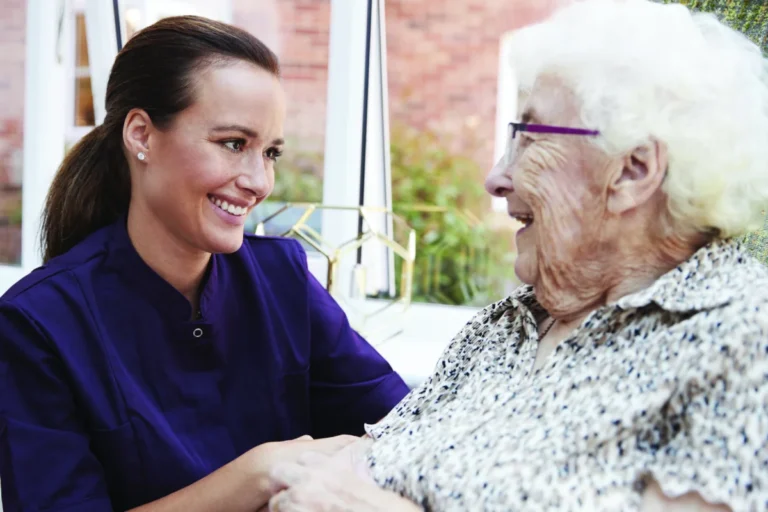Navigating the need for increasing, varying and specialized forms of care for an aging loved one can be complicated. From increasing need for support in activities of daily living to recovery after surgery and planning ahead after a progressive diagnosis – it helps to understand what options are available, when different resources are needed and what the financial picture looks like for each situation.
Many families discuss the option of moving to a senior care community, although the timing and circumstances are different for everyone. For families facing the need for short-term care or families who are facing the uncertainty of a major surgery or health recovery, it can be hard to know where to turn. A skilled nursing facility may be the answer; however, it helps to know what skilled nursing care means and how it can fit into the support model needed to best help older family members.
What Is a Skilled Nursing Facility?
Skilled nursing care is a high level of medical care provided by or under the supervision of a licensed health care professional. The services provided as part of skilled nursing are necessary over the short term to help the patient rehabilitate after a long illness, a serious injury or after surgery; these rehabilitation measures may also be needed by the patient on a long-term basis, depending on the individual circumstances and the patient’s overall health.
Some examples of skilled nursing services include things such as intravenous (IV) therapy; injections; wound care; catheter care; physical, speech and occupational therapy; and the monitoring of vital signs. Skilled nursing services can be provided at any facility with the equipment, trained staff members and other resources necessary to serve the patient. A skilled nursing facility, also known as a SNF, meets specific regulatory certification requirements and primarily provides inpatient skilled nursing care and related services to patients who require medical, nursing or rehabilitative services. Residents living in a skilled nursing facility typically have access to incredible health care and recovery tools, such as:
- Gerontology
- Physiatry
- Nephrology
- Psychiatry
- Neurology
- Social services
- Exercise groups
- Physical, speech and occupational therapy
- Pain management
- Skilled nursing care
- Recreational programs
- Neurological care programs, including multiple sclerosis, stroke, amyotrophic and lateral sclerosis
Any senior entering a skilled nursing facility receives an initial health assessment, as well as ongoing health assessments to evaluate physical and mental health, medications and the ability to handle activities of daily living, such as bathing and getting dressed. The goal of skilled nursing care is for the senior to return home and return to their normal daily lives as much as possible.
Understanding Skilled Nursing Insurance Options
While many forms of senior care are out-of-pocket pay only, Medicare will pay for skilled nursing care in certain situations. Medicare Part A (hospital insurance) will cover skilled nursing care on a short-term basis if all these conditions are met:
- The senior’s injury or illness requires a hospital stay.
- The initial hospital stay must last a minimum of three days.
- During the hospital stay, the senior must be classified as inpatient.
- Once discharged from the hospital, the senior’s doctor must order ongoing care.
- The senior has coverage for any conditions developed while at a skilled nursing facility.
While Medicare Advantage does not cover long-term care, it may help to cover skilled nursing services. Medicare Advantage, also known as Medicare Part C, does cover skilled nursing care if certain conditions are met. Medicare Advantage will cover a stay in a skilled nursing facility for up to 100 days as long as:
- Care for a medical condition was treated during a three-day (or longer) hospital stay prior to the need for skilled nursing care.
- The skilled nursing facility is a Medicare-approved facility.
- Skilled nursing services are required on a daily basis and ordered by a doctor.
Some seniors and their families rely on veterans benefits to pay for senior care. The U.S. Department of Veterans Affairs does provide senior care to veterans in need of long-term medical assistance. The aspects of senior care covered by the VA are determined by each individual’s health care needs, but it could include receiving care in a skilled nursing facility. However, veterans and their spouses must already be signed up for VA health care and meet eligibility and enrollment requirements.
Long-term care insurance is another option for covering the cost of a skilled nursing facility. If a senior purchases a long-term care insurance policy, there is a good chance care in a skilled nursing facility will be covered. Long-term care insurance policies and benefits do vary by plan; however, these policies are designed to pay for custodial and personal care.
Medicaid coverage for skilled nursing care is only available to cover services that are provided in a facility that is licensed and certified by the state survey agency as a Medicaid Nursing Facility (NF). The only time Medicaid NF services are available is if the senior has no other payment options available and the senior is eligible for the Medicaid program. It is common for a senior to enter a Medicare SNF following a hospitalization that qualifies them for a limited period of SNF services. If additional care is still required after the period of SNF coverage, the senior has the option to pay privately or to use any long-term care insurance they may have. If the senior exhausts their assets and is eligible for Medicaid, and the skilled nursing facility is also a Medicaid certified nursing facility, the senior may continue to reside there under the Medicaid NF benefit.
Skilled nursing care can be a vital resource for individuals who need specialized medical attention and support. However, navigating the payment options for skilled nursing can be overwhelming. It’s important to understand and verify your coverage eligibility prior to making any care decisions.
About Tutera Senior Living & Health Care
Tutera Senior Living & Health Care supports residents and their families throughout their aging journey. Tutera’s rehabilitation and skilled nursing communities maintain a focus on both recovery and personal preferences. Residency at a Tutera community begins with your YOUNITE story – which is our way of collecting information about what you like and don’t like and your personal history. These details are utilized to craft a care plan that includes everything from medical treatments to social entertainment. Residents at Tutera stay busy and engaged with a variety of fun activities at their skilled nursing communities, enjoying things like:
- A coffee bar
- Library
- Movie nights
- Salon and barbershop
- Nutritious, delicious dining with restaurant-style menus
To optimize post-surgical rehabilitation, some Tutera communities offer Lotus, the right care at the right time in the right place. Our goal-oriented program is comprised of coordinated services and intensive rehabilitation designed to help you holistically heal and recover in a safe and serene setting.
Contact Tutera today to learn more about our rehabilitation and skilled nursing programs by calling 877-988-8372. Ready to find a Tutera community near you? Follow the link to learn more about our locations.







